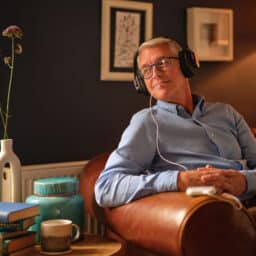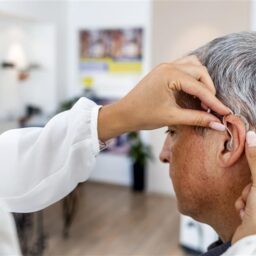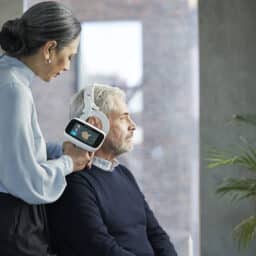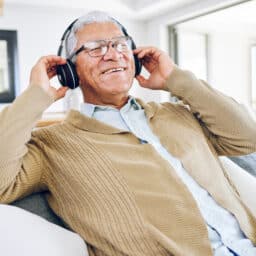Are Men Prone to More Hearing Issues?

It’s important to recognize that hearing loss is a significant health issue that can affect anyone, yet men may be particularly susceptible due to biological factors and lifestyle choices. From Birth Aging and Hearing Noise Exposure Hormones Genetics Getting Help What This Means for You With consistent use, hearing aids can support several aspects of…
AI in Hearing Aids: What It Does and How It Helps You

Artificial intelligence (AI) is transforming hearing aids into smarter, more responsive devices that adapt to each user’s listening needs. Modern hearing aids are no longer just amplifiers—they are equipped with advanced AI systems designed to deliver clearer, more natural and more personalized hearing experiences. Some devices use deep neural networks trained on millions of real-life…
The Power of a Support System in Hearing Health

Living with hearing loss can be hard at times, but having a strong support system makes it easier. Your support system may include family, found family, friends, neighbors, members of your church or religious community—it’s anyone you can count on to be there for you throughout your hearing loss journey. What Research Says Having a…
How AI Is Making Hearing Aids Better Than Ever

AI (artificial intelligence) is in everything these days, including hearing aids! Here’s a look at how AI is changing hearing aids for the better, improving the user’s listening experience while also supporting their overall health and well-being. How AI Hearing Aids Work Using machine-learning algorithms, these hearing aids constantly analyze the sounds around you and…
Why Choose Hearing Aids from an Audiologist Over a Big Box Retailer
When it comes to addressing hearing loss, selecting the right hearing aid provider is a can significantly impact the quality of your life. While big box retailers may seem appealing due to their convenience and lower price points, the medical hearing aid model offers a superior level of service and expertise remain unmatched. The most…
EXPLORING LENIRE: A Breakthrough in Tinnitus Management

The University of the Pacific is committed to advancements in hearing health, including innovative technologies like Lenire®—a clinically studied, FDA-cleared device designed to alleviate tinnitus symptoms. How Lenire WorksLenire uses bimodal neuromodulation, stimulating two sensory pathways simultaneously. Patients listen to customized sounds via headphones while receiving gentle electrical pulses on the tongue. This dual stimulation…
Hearing Aids and Tinnitus Relief

Tinnitus sufferers often struggle to find solutions for the ringing in their ears, but hearing devices may provide effective relief. If you have hearing loss and tinnitus, your hearing devices could help. What Causes Tinnitus?Tinnitus is a symptom often linked to hearing loss. Common causes include aging, noise exposure, and ototoxic medications, which explain why…
Enjoy Comfortable Hearing Solutions with Otoscan

The University of the Pacific Hearing and Balance Center audiology team is pleased to now offer Otoscan®, a revolutionary 3D digital ear scanner that will make your patient experience with us even better! How Otoscan Works Using noninvasive laser technology, Otoscan scans your ear to capture over one million data points, which are transformed into…
The Magic of Music and Brain Activity

Raising awareness about Alzheimer’s and brain health is crucial for educating people of all ages and supporting those affected by Alzheimer’s disease and other types of dementia. Alzheimer’s affects an estimated 50 million Americans and is the sixth-leading cause of death in the U.S., killing more than breast cancer and prostate cancer combined. It is…
Take a Holistic Approach to Healthy Aging

You’re only as old as you feel, so why not feel your best? Embracing a holistic approach to healthy aging involves adopting and maintaining the healthy habits below—the earlier these habits take root, the better off you’ll be! Exercise Your Body Do you want to travel to Paris, take up kayaking or simply be able…